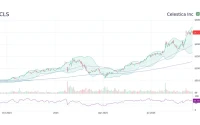The Price of a Grudge: Deconstructing the Brazil-China Pivot
You can learn a lot about global power shifts by ignoring the grand speeches and just watching the logistics. Capital, like water, always finds the path of least resistance. For decades, a significant portion of Brazil’s economic river flowed north to the United States. Now, a 50-percent tariff, erected like a concrete dam by the Trump administration, has forced that river to change course. And waiting downstream, with a newly dredged canal, is Beijing.
The scene was a sterile conference hall in Sao Paulo on Monday. China’s ambassador, Zhu Qingqiao, stood before the Brazil-China Business Council and delivered a message that was as predictable as it was potent. He spoke of “sustainable development” and a “world-class business environment.” But the real message wasn't in the platitudes; it was in the context. The speech was a formal invitation to a party that Washington had made possible. While Zhu was speaking, you can be sure that somewhere in that room, a Brazilian CEO was on his phone, telling his logistics chief to reroute a container ship from Baltimore to Shanghai. The quiet tap of his fingers on the screen was the sound of a geopolitical pivot happening in real-time.
The official justification for the White House’s tariff is retaliation for the 27-year prison sentence handed down to former president Jair Bolsonaro for plotting a coup. A domestic legal outcome in Brazil has now triggered a massive, indiscriminate economic penalty. The tariff isn’t a scalpel; it’s a cudgel. A 50 percent duty isn’t a negotiating tactic designed to bring a partner to the table. It’s a functional trade embargo designed to inflict pain.
The problem with using economic weapons of that magnitude is that the target rarely sits still and absorbs the blow. They look for an exit. And China has become the world’s most sophisticated and well-capitalized provider of economic exits.
The Anatomy of an Economic Shock
Let’s be precise about what a 50 percent tariff actually does. It doesn’t just make Brazilian goods more expensive for American consumers. For many Brazilian exporters, it erases their entire profit margin and then some. It makes the U.S. market, once a primary destination, a financial black hole. A business plan that was viable on Sunday becomes bankrupt on Monday. The move forces an immediate, existential recalculation for a huge swath of South America’s largest economy.
This isn’t about abstract trade flows; it's about a cascade of micro-decisions. A Brazilian beef producer, whose operations were calibrated for decades to meet USDA standards, now has to retool for Chinese import requirements. A furniture manufacturer in Santa Catarina sees its order book from North Carolina retailers evaporate. The capital allocated for U.S. market expansion is now frozen, then re-apportioned to explore opportunities in Asia. The entire economic relationship is being unwound, not by market forces, but by a single punitive number.

I’ve looked at the data from similar trade shocks in the past, and the pattern is always the same. The initial disruption is chaotic, but a new equilibrium forms surprisingly quickly. The U.S. tariff is like a geological event that reroutes a major river. The flow of goods and capital doesn't just stop; it carves a new channel. In this case, the channel leads directly across the Pacific. What I find genuinely puzzling is the apparent assumption in Washington that this rerouting wouldn’t happen, or that the cost of it would be less than the political satisfaction of punishing Brazil's government.
This raises a fundamental question that the data can't answer directly: was this a calculated strategic risk, or a temper tantrum with a tariff code attached? Did anyone in the administration model the second- and third-order effects of pushing a G20 economy, one of the world's great commodity producers, directly into the arms of its primary strategic competitor? Or was the short-term political win deemed more valuable than the long-term strategic loss?
Beijing’s Calculated Opportunism
Ambassador Zhu’s speech wasn’t an act of friendship; it was an act of supreme opportunism. As one headline put it, the China envoy vows deeper Brazil ties, denounces US ‘jungle’ law in tariff showdown. The important phrases were operational: promises of investment and, crucially, “export certifications.” That’s the language of a state-led commercial pivot. Beijing isn’t just offering to buy what the U.S. won’t; it’s offering to integrate Brazilian producers into its own supply chains.
The numbers on this new wave of investment are still vague, but the intent is not. China is Brazil’s largest trading partner already, with bilateral trade at about $150 billion—to be more exact, it was $150.4 billion in 2022. That figure is now set to expand dramatically. Beijing is essentially offering to underwrite Brazil’s losses from the U.S. market. They are playing the role of the stable, predictable partner, a stark contrast to an increasingly volatile and politically-driven trade policy from Washington.
This is a classic play from Beijing’s economic statecraft portfolio. They absorb a partner’s economic pain, create dependency, and gain strategic leverage in return. The cost for China is marginal (they need Brazil's commodities anyway), but the geopolitical return on investment is enormous. For the price of a few infrastructure loans and expedited import approvals, they get to demonstrate to the entire Global South that they are the buyer of last resort when Washington gets angry.
But what are the terms of this deal? What does China expect in return for this economic lifeline? Will it be preferential access to Brazil’s lithium reserves? Support for Chinese initiatives in international forums? A promise to use Huawei for its 5G infrastructure? The details of the quid pro quo remain opaque, but it’s naive to assume there isn’t one. Beijing’s balance sheet always has two columns: one for currency and one for influence.
An Inevitable Consequence
Ultimately, this entire episode is a case study in unforced errors. The United States used a powerful economic tool to achieve a political end, seemingly without a full accounting of the collateral damage to its own strategic interests. The objective may have been to punish Brazil for a domestic judicial decision, but the result was to gift-wrap a major South American partner and hand it to Beijing. The math is brutal. Washington inflicted a temporary economic cost on Brazil but incurred a permanent strategic liability for itself. China, by simply showing up with an open checkbook, has deepened its influence in the Western Hemisphere at virtually no cost. This wasn't a complex geopolitical chess move by Beijing; it was simply walking through a door that the United States had opened wide for them.









